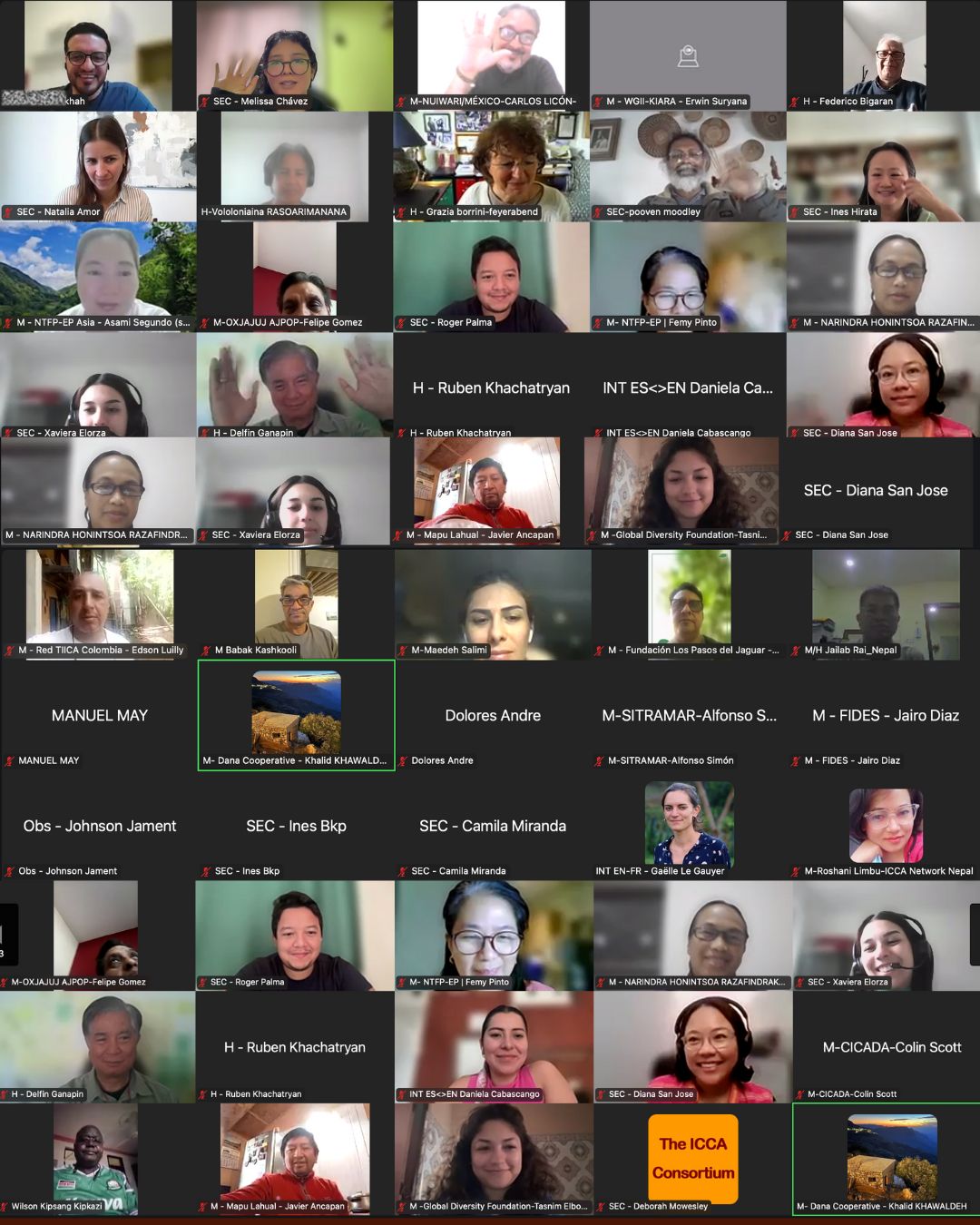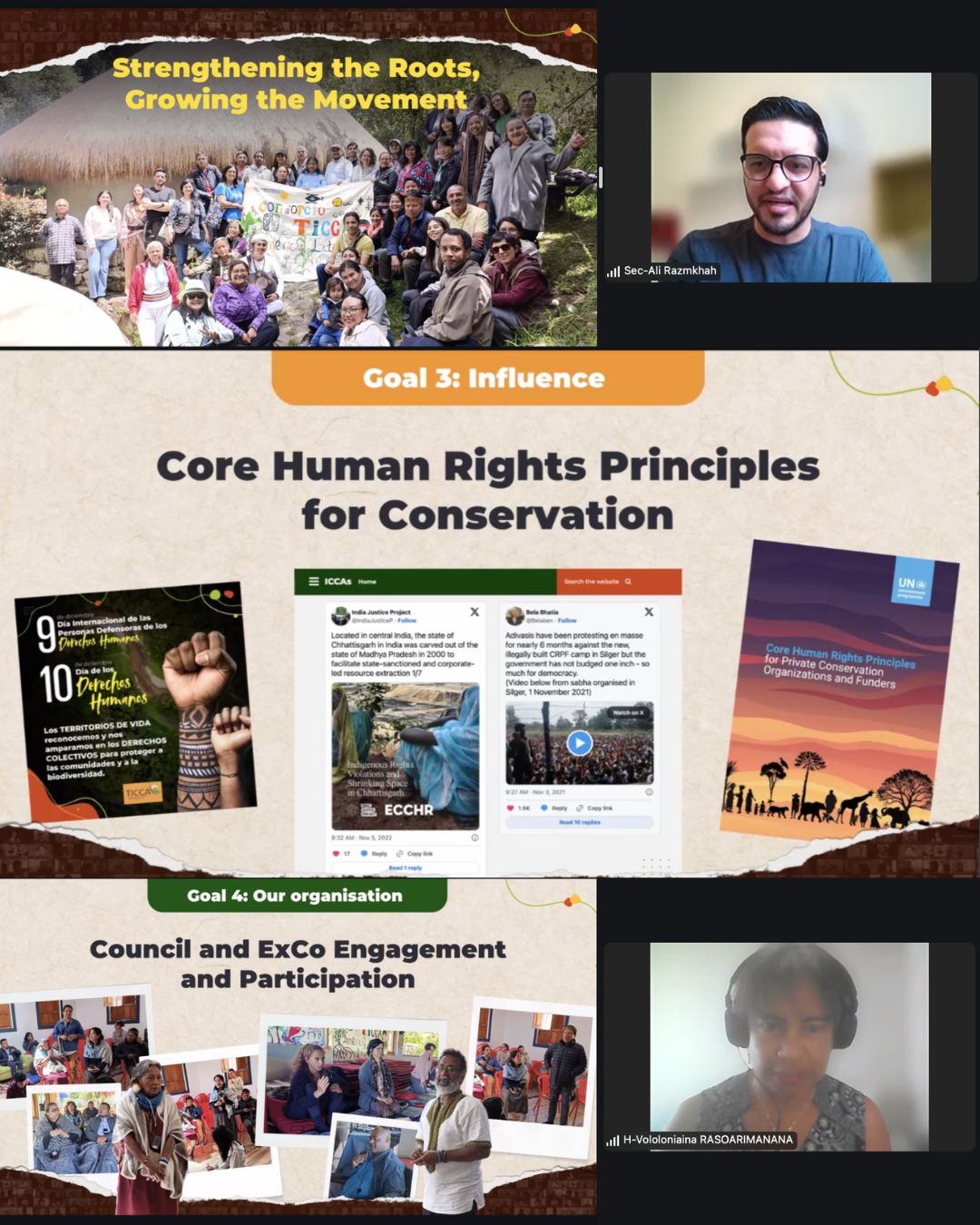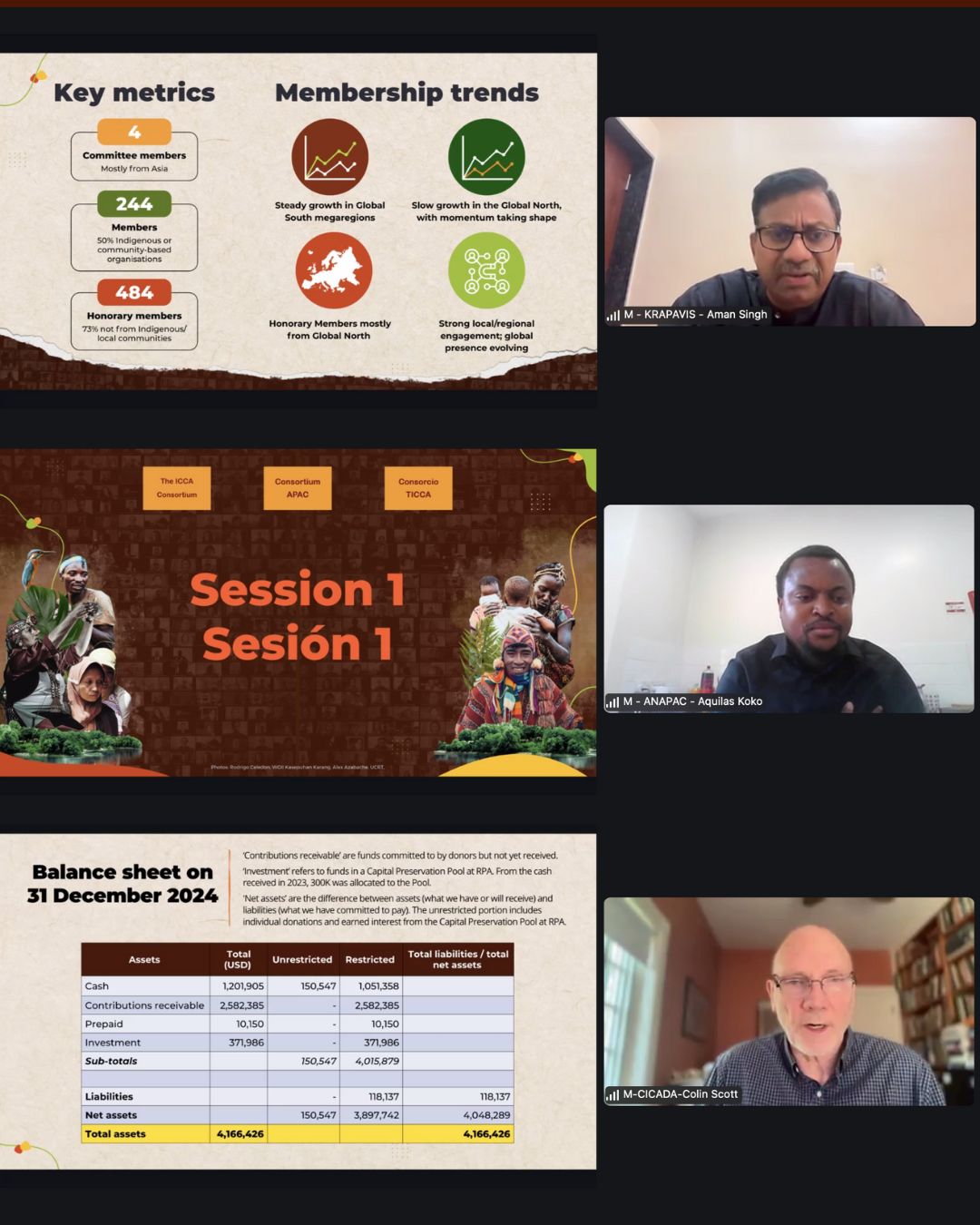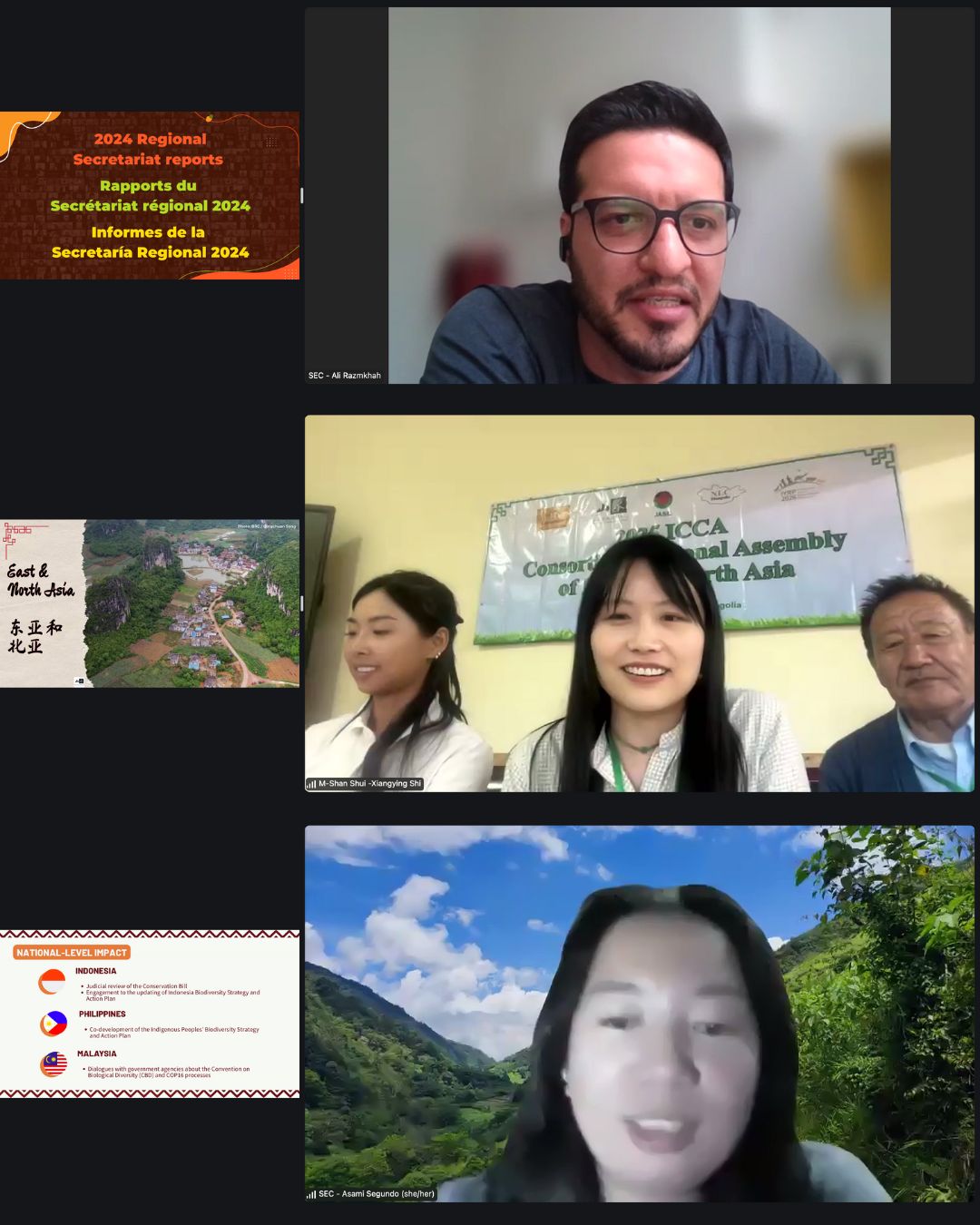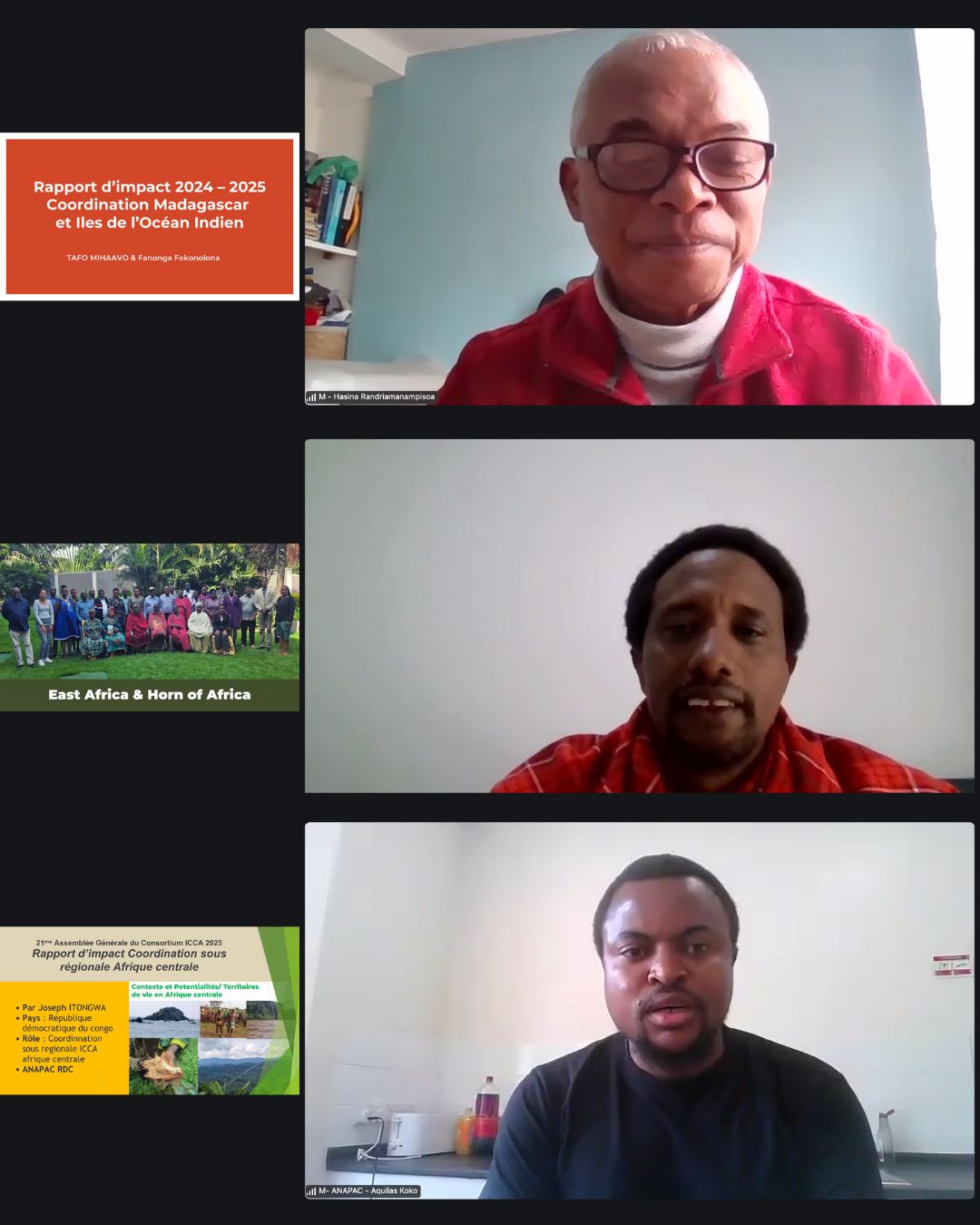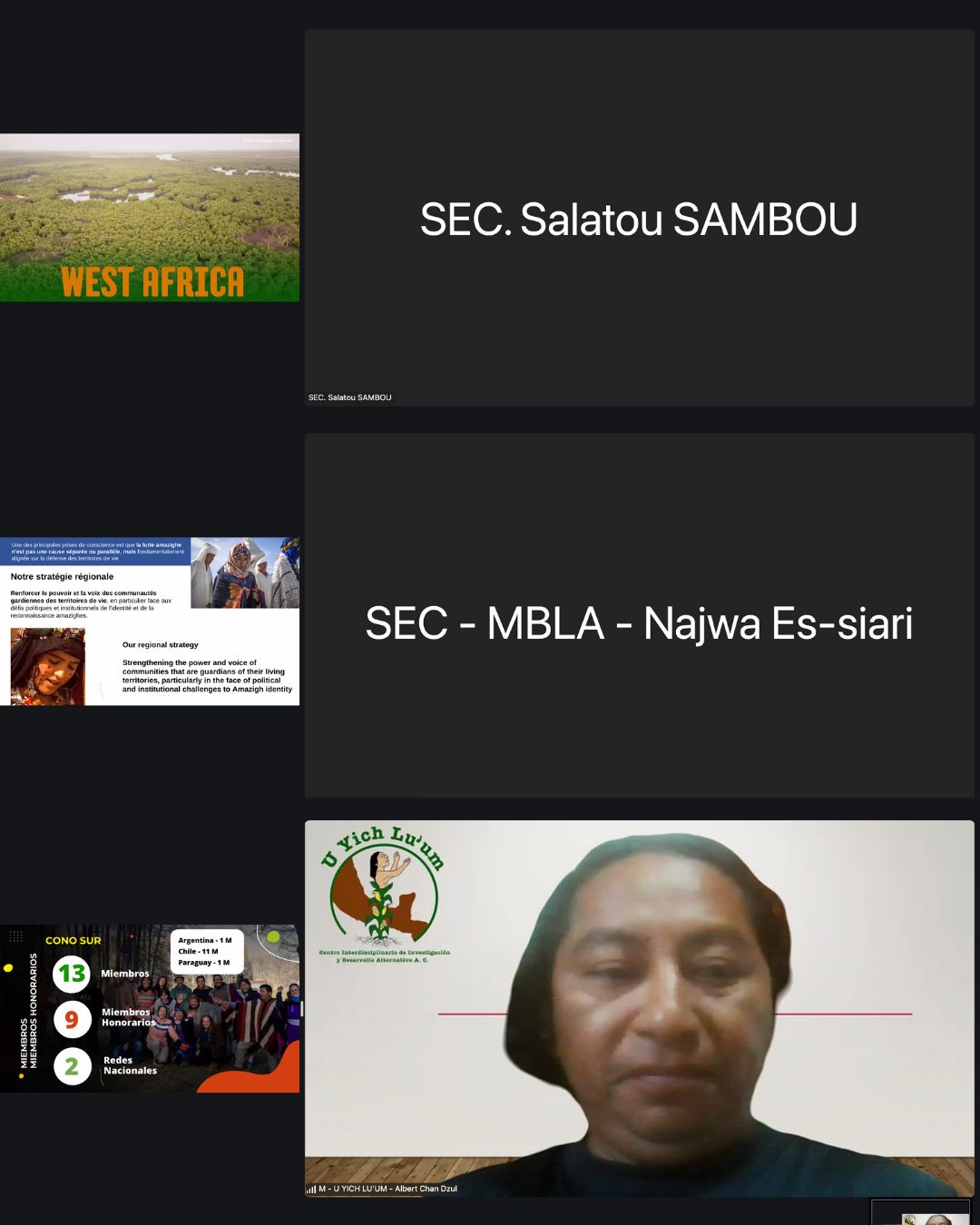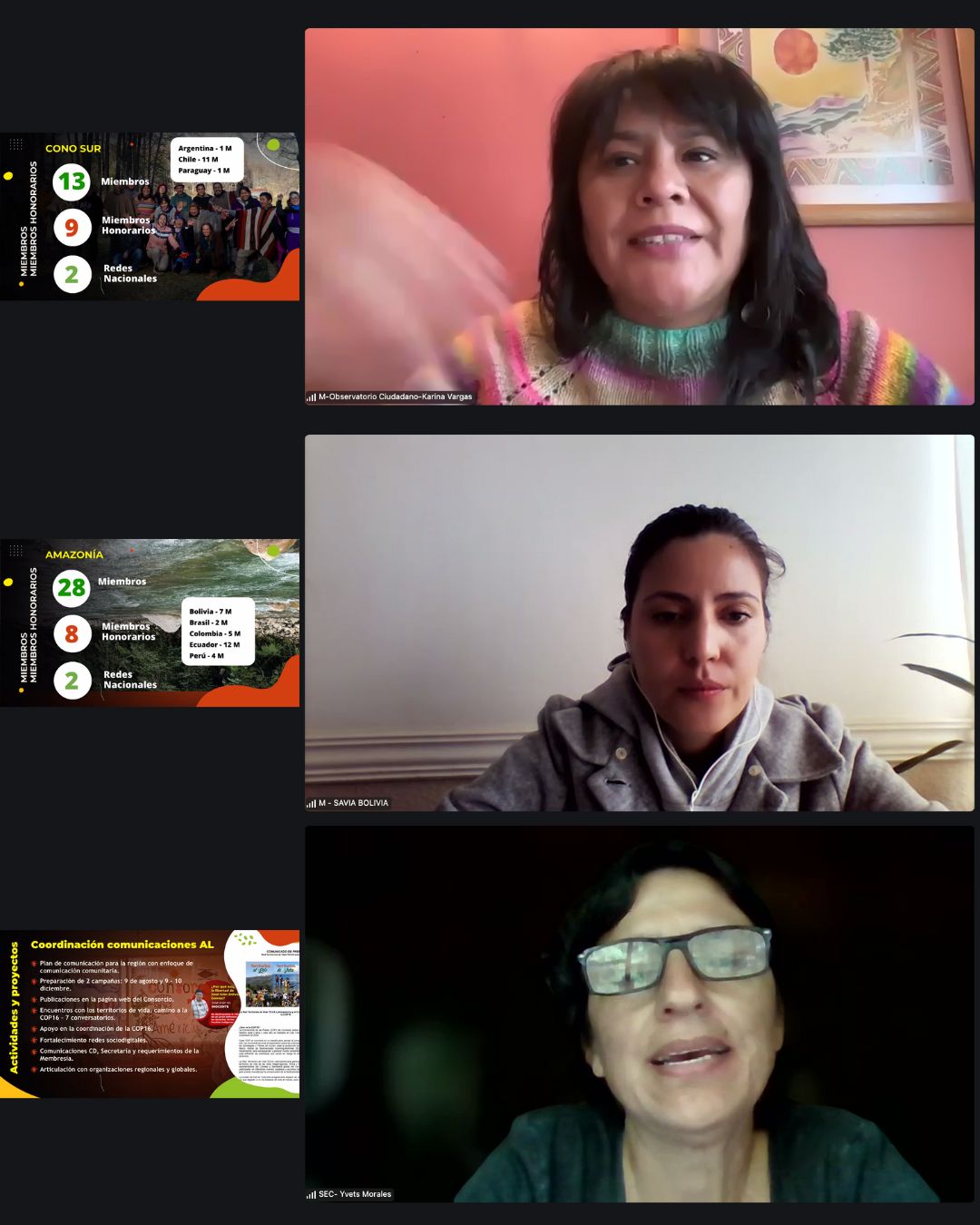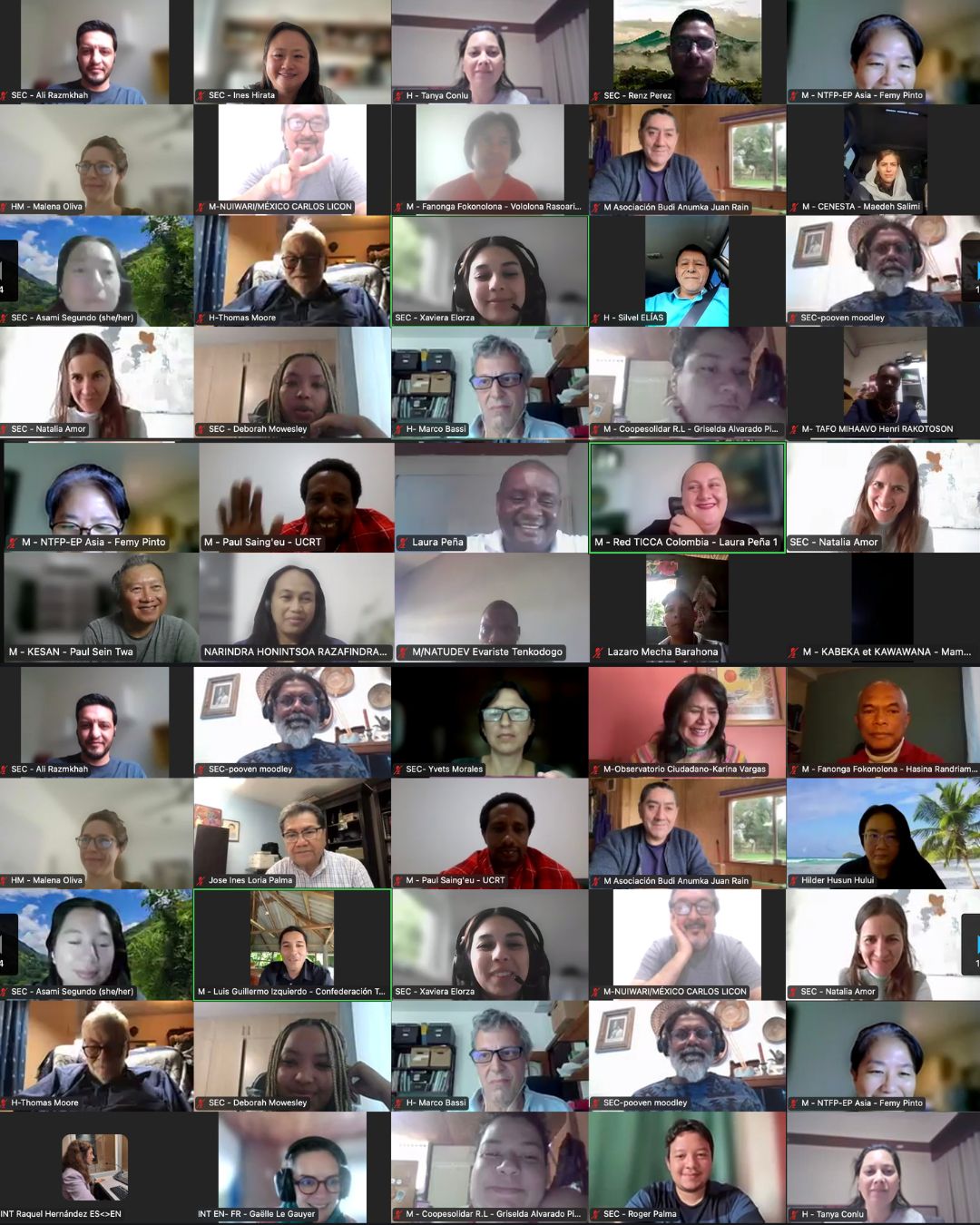First published on 08/08/2025, and last updated on 08/12/2025

The ICCA Consortium’s collective journey gets new momentum at the 21st General Assembly
Building on the overarching goals of the General Assembly, each session of the GA delved into specific thematic areas central to the Consortium’s work and evolution
By ICCA Consortium
The 21st General Assembly (GA) of the ICCA Consortium was held virtually in May and June of 2025. The assembly was organized in a semi-staggered approach with four formal sessions between May 27th and June 26, 2025, with a four-week intersessional period.
The GA was convened as the Consortium’s highest decision-making body, bringing together members, honorary members, partners, and allied observers to reflect globally and regionally on collective progress, review reports, decide on strategic directions, and renew leadership.
Building on the overarching goals of the General Assembly, each session of the GA delved into specific thematic areas central to the Consortium’s work and evolution. These included examining progress and challenges, sharing regional experiences, articulating priorities for the coming years, and engaging in participatory leadership renewal. The following summary captures the key moments and outcomes of each session.
Session 1: Strategic Reflections and Institutional Foundations
Opening the assembly with purpose, vision, and global participation
Tuesday, May 27, 2025
The General Assembly opened with a warm welcome and opening remarks from President Luis Guillermo Izquierdo, setting a thoughtful and participatory tone. The first session focused on the 2024 Global Performance Report — a shared reflection on how the Consortium advanced its mission during the first year of implementing the new five-year strategic plan.
Anchored in four interconnected goals, with self-determination at the core, the report captured a year of renewal, structural change, and deeper alignment with the priorities of Indigenous Peoples and Local Communities. It showed how regional coordination teams — now active across 12 regions in Latin America, Africa, and Asia had taken on growing leadership, managing resources more autonomously and contributing meaningfully to international forums.
The assembly formally noted the reports of the Treasurer, Auditor, and Membership Committee. Members highlighted the importance of activating the potential of the large number of honorary members and called for more agile and responsive internal mechanisms to meet emerging challenges. These reflections signalled a broader moment of institutional introspection, setting the stage for more inclusive and adaptive approaches to governance and collective action in the months ahead.
Session 2: Regional Voices and Organizational Transformation
Deepening decentralization and embracing change: insights from the regions and advancing the organizational change process
Thursday, May 29, 2025
The session began with the presentation of the 2024 Secretariat Report from regional teams, which compiled impact summaries from all 12 regional hubs. The assembly formally acknowledged the report, appreciating its candid reflections on the challenges faced, actions taken, and outcomes achieved by Consortium Members, their allies, and networks worldwide over the past year.
These regional insights then set the stage for a focused discussion on the ongoing Organizational Change process, recognized as a deliberate, collaborative effort to strengthen governance and operations, with broad consensus on the urgent need for transformative change grounded in active, inclusive participation across all levels of the Consortium.
Members emphasised that meaningful change requires decentralizing decision-making and strengthening regional representation to ensure that governance reflects the lived realities of Indigenous Peoples and Local Communities. They highlighted the importance of shared understanding through comprehensive onboarding and ongoing alignment with the Consortium’s vision, mission, and strategic plan.
Communication challenges were openly acknowledged, with members calling for improved interaction between governance bodies to support transparency and effective collaboration. These collective interventions underscored the urgency and complexity of the Organizational Change process and reinforced the commitment to inclusive, grounded, and coordinated transformation.
Session 3: Strategic Planning, Budget, and Council Elections (Part 1)
From vision to action: endorsing the 2025 Action Plan and renewing governance mandates
Tuesday, June 24, 2025
The third session of the assembly marked a pivotal moment with the unanimous approval of the 2025 Secretariat Action Plan and accompanying annual budget. Under three core objectives—delivering tangible results, strengthening advocacy and influence, and enhancing governance and team effectiveness—the Action Plan translates the Consortium’s collective vision into a concrete and strategic roadmap for the year ahead.
Teams in the Secretariat with an international scope of work presented their respective strategies and key actions, followed by the regional coordination hubs’ outlines of sub-regional priorities and initiatives, highlighting the essential balance between a unified international vision and empowered regional leadership.
The session demonstrated broad consensus around the plan’s strategic direction and priorities. Members emphasized the vital importance of embedding human rights safeguards within conservation work, underscoring the need for proactive legal empowerment, effective redress mechanisms, and robust community-led governance systems as foundational to supporting Indigenous Peoples and Local Communities in safeguarding their territories and shaping their futures.
The Consortium’s financial outlook for 2025 was detailed by the Finance Coordinator, who clarified resource allocation across categories and regions, allowing the membership to engage with substantive questions and insights concerning budget transparency and targeted fundraising strategies.
Leadership and governance matters were also addressed. The assembly confirmed the re-election of the Treasurer and the President of the Membership Committee and renewed the mandate of the Auditor of the Accounts and Ombudsperson. The election for Vice President, initially scheduled for this session, was postponed, facilitating further dialogue between nominees, reinforcing the Consortium’s commitment to consensus-driven governance.
Session 4: Council Elections (Part 2) and Assembly Outcomes
Consensus, continuity, and commitment: leadership renewal and celebrating unity in diversity
Thursday, June 26, 2025
During the Assembly’s final session, a pivotal moment of renewal and unity unfolded. After a special meeting between the Vice President nominees, a consensus was reached. Vololoniaina Rasoarimanana from Madagascar was nominated as Vice President, while Khalid Khawaldeh from Jordan assumed the role of Secretary. This outcome reflected the deep commitment to dialogue, respect, and collective decision-making within the association.
The Assembly then elected and re-elected five members to the Global Council, representing thematic and regional voices, thus reinforcing the Consortium’s diverse governance. During the proceedings, a discussion on the nomination of new Council members arose. Despite one objection, the Assembly’s openness allowed thoughtful engagement, demonstrating its ability to navigate complexity with shared purpose, emphasising consensus, responsibility, and respect.
As the session closed, the President expressed heartfelt gratitude to all participants, celebrating the collective dedication to advancing the Consortium’s mission. He reflected on the rich discussions and planning, highlighting their roots in grassroots networks and territorial realities—foundations that make the Consortium’s governance grounded and vibrant as a global movement.
He noted the strong alignment across regional plans and aspirations as a positive sign of deepening regionalization and coordinated action. Closing with optimism, he reaffirmed confidence in the Consortium’s shared path forward—a commitment to safeguarding territories of life and empowering Indigenous Peoples and Local Communities facing an uncertain future.
The assembly concluded with a participatory ceremony guided by light, symbolizing continuity and renewal—a testament to the Consortium’s enduring spirit and collective strength.

2024 reports: documenting progress and accountability
Key reports and financial overviews presented to the assembly
The following reports were presented and noted during the GA
- 2024 Global Performance Report
- Membership Committee Report
- Treasurer Report
- Accounts Auditor Report
- Regional Secretariat Reports
The reports are accessible to the current ICCA Consortium membership via Loomio and may also be obtained upon request in digital format.

Elections for the 2025–2028 term
The following individuals were elected during the 2025 General Assembly:
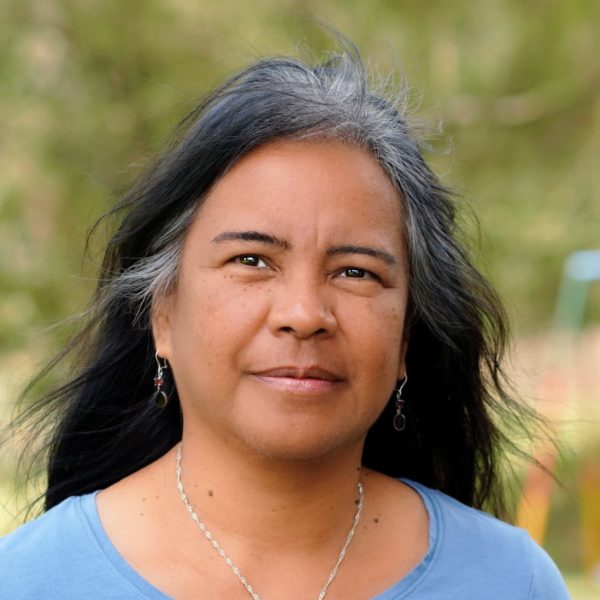
Vololoniaina Rasoarimanana
Vice President
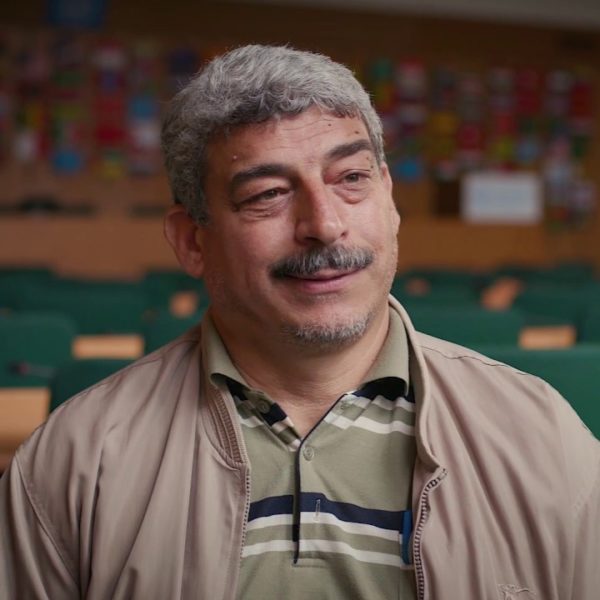
Khalid Khawaldeh
Secretary

[Name withheld for safety reasons]
Thematic Co-Representative for Defending territories of life
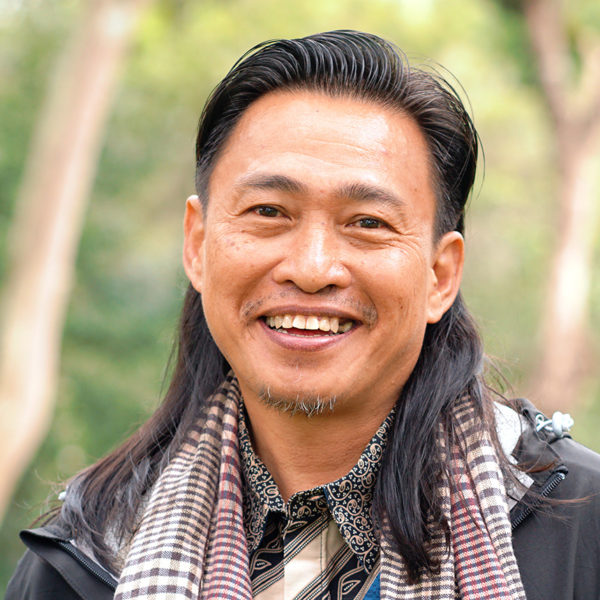
Teddy Baguilat Jr.
Thematic Co-Representative for Defending territories of life

Ganbaatar Bandi
Regional representative for East and North Asia
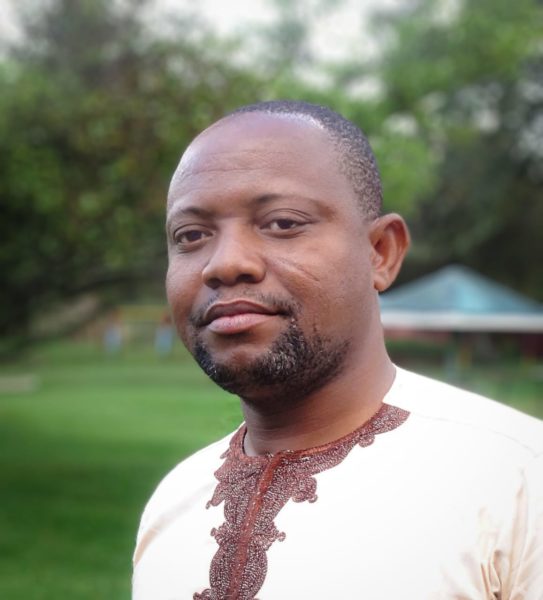
Victor Boton
Regional representative for West Africa
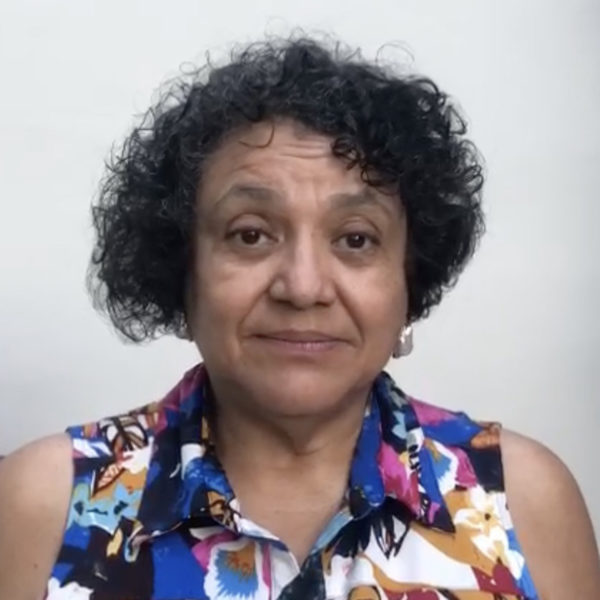
María Luisa Acosta
Regional representative for Latin America
We extend our gratitude to all nominees and outgoing representatives for their commitment and unwavering support of the mission of the ICCA Consortium.

Our commitment to territories of life through collective governance
Building on the substantive discussions, strategic decisions, and leadership renewal detailed above, the 21st General Assembly sought to foster meaningful engagement among its membership, allies, and partners. By prioritizing interactive dialogue and the sharing of diverse perspectives, the assembly aimed to be more than a formal occasion for reporting and decision-making, striving instead to create a vital space for collective reflection, learning, and responsiveness.
Looking ahead, sustaining this spirit of collaboration will be key to ensuring that the Consortium’s work remains dynamic and closely connected to the evolving realities and needs of Indigenous Peoples and Local Communities worldwide. This ongoing emphasis on inclusive participation, transparency, and mutual respect will continue to guide the Consortium’s journey as a global movement dedicated to defending territories of life.
With great appreciation, we thank all attendees for their ongoing commitment and willingness to engage constructively, each bringing a unique contribution to our collective efforts.
